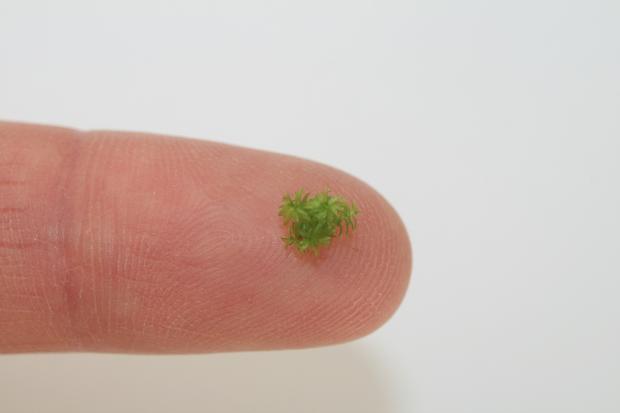Not so, a new study describes 32,275 protein-encoding genes from the moss Physcomitrella patens, about 10,000 genes more than the human genome contains.
Physcomitrella was chosen for whole-genome shotgun because it is well established as a model species for basic biology, biotechnology, and synthetic biology on a worldwide scale. The Joint Genome Institute (run, in American government fashion, by the Department of Energy) considers Physcomitrella a "flagship genome", which means they believe it contains information that will help to cope with numerous problems, like improved crop yields, disease and insect resistance, drought tolerance, viable biofuel production and, of course, with global warming.
For the recent study the scientists collected all available information on the moss genome as well as transcript evidence and used this data for a completely new bioinformatic analysis. . By combining all DNA and RNA data, the scientists were not only able to annotate the 32,275 genes that encode proteins but also to reveal the so-called "dark matter of the genome", i.e. those genomic regions that are transcribed into small non-coding RNAs like microRNAs. See the freely available results here.

Physcomitrella patens. Credit: Pflanzenbiotechnologie, Universitaet Freiburg
"One of our intriguing findings is that 13 percent of the Physcomitrella genes have no clear relatives in any other sequenced organism so far. Analyzing these orphan genes more deeply will reveal the hidden treasures of the moss genome", says Professor Ralf Reski from the University of Freiburg. "Although it seems annoying that mosses outperform humans greatly by gene number, it is exactly this feature that may secure our future."
Citation: Andreas D Zimmer, Daniel Lang, Karol Buchta, Stephane Rombauts, Tomoaki Nishiyama, Mitsuyasu Hasebe, Yves Van de Peer, Stefan A Rensing and Ralf Reski, 'Reannotation and extended community resources of the non-seed plant Physcomitrella patens provide insights into the evolution of plant gene structures and functions', BMC Genomics 2013, 14:498 doi:10.1186/1471-2164-14-498






Comments